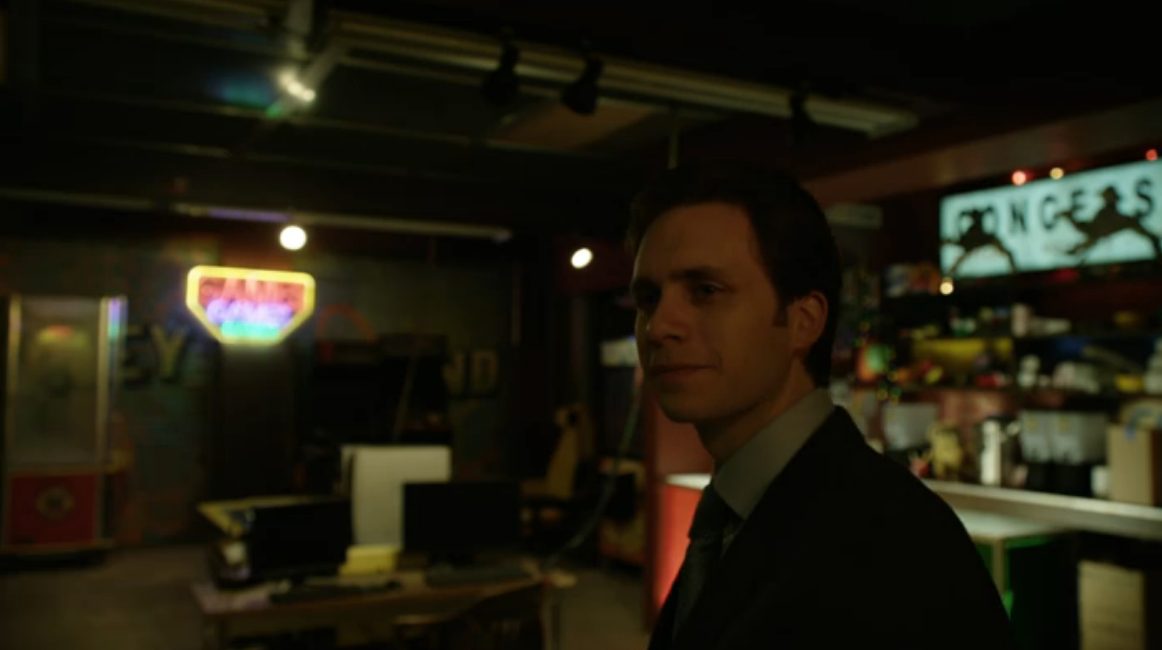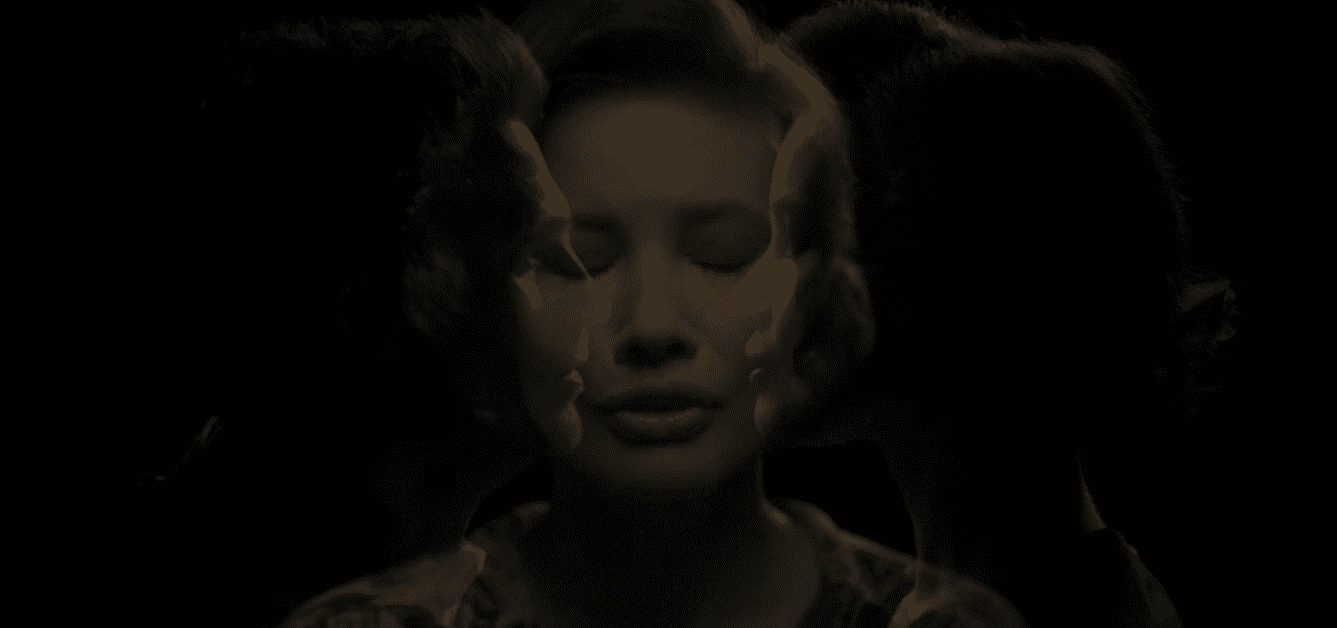Here at 25YL, we love music—so much so that we’ve just rolled out a music department! But what is perhaps all the more powerful than a great song is when the music in a TV show or film perfectly supplements the action, deepens the emotional stakes, or otherwise just fits so well that it becomes an indelible part of your memory of the film or show in question. Here are a few of the best uses of music in TV (in my opinion), focusing on particular scenes from some of my favorite shows.
There are some spoilers in what follows, so if you haven’t seen the show in question beware. At the same time, if you don’t know who killed Laura Palmer, what have you been doing with your life?
Lost “Make Your Own Kind of Music”
The opening sequence of the second season of Lost might be one of the best in television history. It begins with a beeping noise, and then we see a man’s eye open. At first, we really don’t know what is going on. We don’t know whw this man is that we are being shown, or even what the setting of the action is. But there is a computer that he types something into.
The place seems a bit off—it is a pretty old school computer, for one thing—and though we follow Desmond’s routine, we don’t yet know that this is Desmond. His face is even withheld from us, even though we wouldn’t yet recognize it. One of the only things we know about the mystery man early on is that he enjoys Mama Cass’s “Make Your Own Kind of Music,” as he puts the record on a turntable.
The song perfectly informs the scene, as Desmond moves around what we will come to learn is the bunker underneath the hatch. Season 1 ends with Locke and Kate getting that mysterious hatch open, and to begin the second season by going inside of it and maintaining the mystery, even so, is a move exemplary of Lost at its best.
And somehow, setting this action to “Make Your Own Kind of Music” just makes the whole thing all the more haunting. Who is this guy, and what kind of music is he interested in creating? The song is a metaphor, after all. We’re encouraged to sing our own special songs even if no one else sings along, but isn’t there always a potential dark side to such paeans to authenticity? Imagine this song in the background as Hannibal Lector cooks up some human flesh. It’d work.
Desmond, of course, is not that, and in fact he is perhaps my favorite character on Lost at the end of the day. But when we first meet him, we don’t know anything about him. All we have are the moments of his routine set to this song that somehow makes them all the more mysterious and haunting.

Mr. Robot “Where is My Mind?”
The influence of Fight Club on Mr. Robot is fairly clear from the beginning, and the show makes no bones about this. The plan that Mr. Robot lays out to Elliot about erasing debt basically just is Project Mayhem, and anyone who is familiar with Fight Club would recognize this immediately.
Equally, when Elliot discovers that Mr. Robot is in fact him, he accuses the audience having known all along, or at least of having figured it out before him. And he gets mad at us. The way in which we are addressed as Elliot’s “friend” in Mr. Robot breaks the fourth wall in a brilliant way, because the thing is he is not wrong. We did see this coming because the show had us thinking about Fight Club basically from the start.
If there was any doubt about how intentional this all was on the part of Sam Esmail and Co., the scene in the arcade in Season 1 Episode 9 erases it as a piano version of “Where is My Mind?” begins to play as Elliot talks to Tyrell on the verge of carrying out his hack.
This is, of course, precisely the song that plays at the end of Fight Club, as Project Mayhem is carried out. The Narrator has shot himself. He and Marla hold hands. And buildings collapse.
It is the original Pixies version of the song in Fight Club. Mr. Robot instead employs a soft piano arrangement from Maxence Cyrin, and it is beautiful. It serves largely the same function as the song did in the film, poking us to question the motivations and sanity of our protagonist, but it also a clear nod by Mr. Robot to this source of inspiration.
Tyrell questions Elliot about what he is doing and why. He says he is going to work with him now, but we don’t know if he means it or not. And there is a gun in the popcorn.
There were many who speculated that Tyrell might be a part of Elliot at this point, and this use of “Where is My Mind?” I think feeds into that sense of really not knowing what is going on, or what is going to happen.

The Leftovers “Nothing’s Gonna Stop Me Now” (Perfect Strangers Theme)
The music in The Leftovers is brilliant overall, and there are any number of scenes or moments I could have picked here. In the opening scene of the Pilot, for example, the way that Max Richter’s score comes in perfectly sets the mood for the Sudden Departure.
But I’ve decided to make a somewhat odd choice here, and go with music that plays during the opening credits—not always, just once.
The Leftovers changed its opening title sequence radically from Season 1 (which featured paintings and the like with religious imagery set to dramatic Max Richter music) to Season 2 (which featured candid shots of various people along with shadows of the Departed, set to Iris DeMent’s “Let the Mystery Be”).
I love both of those sequences, but with Season 3 we were in store for something completely different. The first episode eschewed the credits altogether, and then for the second episode we see the very same images we had become used to seeing throughout the whole of Season 2, but now instead of “Let the Mystery Be” there was…the theme song from Perfect Strangers.
What was great about this was how not random it was. There are references to Perfect Strangers riddled through The Leftovers, going back to the beginning. Mark-Linn Baker appears in the show…as Mark Linn-Baker. The title of the episode in question is “Don’t Be Ridiculous.” And to hear this song behind the same images as those that had been in the credits throughout Season 2 imbued them with a new meaning. One looked at them in a different way.
The lyrics of “Nothing’s Gonna Stop Me Now” in relation to this moment in the show lead one to question what precisely the characters are trying to do. They could relate to Matt and his mission, or to Nora’s persistence in the face of the absurd, or to pretty much any character in a certain way.
And insofar as The Leftovers is a show about the absurd, the Perfect Strangers theme calls to mind the humorous aspect of absurdity. You think the Departure was the Rapture?—Don’t be ridiculous!

Legion “Mother”
Legion used music throughout its run in interesting ways. I was tempted to choose the use of Captain Sensible’s “Wot” to indicate that something screwy was going on with time, or the use of Superorganism’s “Something for Your M.I.N.D” in Season 3 Episode 1. However, the most striking use of music in Legion has to be the rendition of Pink Floyd’s “Mother” as the series comes to its culmination.
Perhaps it is because I love the song, or perhaps it is because I love the audacity of putting a full six-minute-long cover into the series finale, but it is hard for me to think of a better use of music on a TV program. The themes of “Mother” resonate with those of Legion as a whole as it comes to its conclusion: worries about oneself, and one’s place in the world, whether the world will break you, or whether perhaps you are the one to save it, etc.
And, of course, there is David’s own relationship with his mother (and father)—abandonment issues and more!
Entering the final episode, it was hard to see what would bring Legion to a satisfactory conclusion, but to my mind, this did so far more effectively than any attempt in terms of a purely traditional narrative could have.

Twin Peaks “Laura Palmer’s Theme”
The music in Twin Peaks is consistently great, even when it doesn’t stem from Angelo Badalamenti. But the songs that he composed for the original run are iconic and beautiful. Every time I watch the show, I sit through the opening credits. I bask in them. And I’ve always sat with the closing credits as well, just to listen to the music.
But perhaps the most powerful instance of music in the entire show occurs in the scene where Leland dies. There is a bit more to it than “Laura Palmer’s Theme” when it comes to the soundscape of the scene—the noise of the water from the sprinkler system, for example, and some permutations in precisely how the music goes—but this music plays an integral role in the power of the moment.
Leland laments what he has done and calls out that he loved Laura. And if we believe him; if we in his final moments take a step in the direction of forgiving him, I take it this is not just due to Ray Wise’s incredible performance, but to the music and the effect it creates.
There is tragedy in its every note and chord. It’s Laura’s tragedy, of course, but here it becomes Leland’s as well. It’s one of the best scenes on TV history, and the music is a large part of why.

